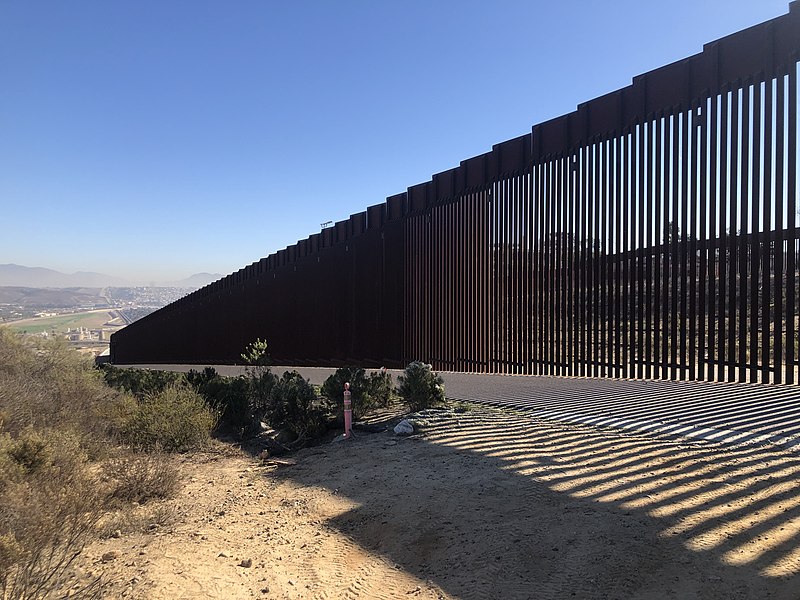
The Biden administration has announced it will not extend the legal status of over half a million migrants who entered the U.S. under a sponsorship program designed to reduce illegal border
crossings, the Department of Homeland Security (DHS) confirmed on Friday.
Migrants admitted through the program will now be required to seek legal status through other immigration pathways, leave the country, or face deportation proceedings.
The sponsorship program, launched in October 2022, was initially created to provide Venezuelans a legal pathway to enter the U.S. and discourage illegal crossings at the U.S.-Mexico border. In January 2023, the program expanded to include migrants from Cuba, Haiti, and Nicaragua, all of whom were also arriving at the border in significant numbers.
By the end of August, approximately 530,000 migrants from these four countries had arrived in the U.S. through the program, known as the CHNV (Cuba, Haiti, Nicaragua, Venezuela) initiative. These individuals were granted temporary legal status for two years under the parole authority, which allows presidents to admit foreigners for humanitarian or public interest reasons.
According to government data, the CHNV program admitted around 214,000 Haitians, 117,000 Venezuelans, 111,000 Cubans, and 96,000 Nicaraguans. Venezuelans, who were the first to arrive under the program in October 2022, will begin to lose their parole status this month. For migrants from Cuba, Haiti, and Nicaragua, their parole periods will expire early next year.
Although some had expected the Biden administration to extend the parole status of these migrants—similar to how it did for Afghan evacuees and Ukrainian refugees—the DHS opted not to grant extensions, known as "re-parole." Instead, these migrants will receive notices instructing them to either apply for another immigration status or leave the U.S.
“If you have not sought a lawful status or period of authorized stay, you will need to leave the United States before your authorized parole period expires, or you may be placed in removal proceedings,” the government said in a notice to parolees.
Some migrants may be eligible to remain legally in the U.S. through other programs. For example, many Haitians and Venezuelans may qualify for Temporary Protected Status if they arrived before specific cut-off dates in 2023 and 2024. Cubans can apply for permanent residency through a Cold War-era immigration law. Others may seek asylum, although this requires proof of persecution based on religion, race, or political beliefs. Migrants with U.S. citizen relatives may also be eligible for immigrant visas.
However, the decision not to extend parole for these migrants could leave many in legal limbo, unable to work and at risk of deportation unless they secure a different status. Deportations to Cuba, Nicaragua, and Venezuela are currently limited due to these governments' restrictions on accepting deportees, though the U.S. continues regular deportations to Haiti.
The decision has sparked criticism from progressives and immigration advocates, who argue that migrants from these countries are being treated differently from Afghans and Ukrainians, who received parole extensions. "When Trump is running on promises to revoke legal status & conduct mass deportations, why would the Biden admin force more people into legal limbo?" wrote Andrea Flores, a former Biden administration official. "They re-paroled Afghans & Ukrainians, why single out Venezuelans & make them uniquely vulnerable?"
At the same time, the decision may help alleviate criticism from Republicans, who have condemned the CHNV program as a loophole in legal immigration processes and accused it of being vulnerable to fraud. The program was briefly paused this summer to investigate fraud concerns among those sponsoring migrants.
The CHNV program has been a key part of the Biden administration’s immigration strategy, which aims to manage record-high migrant crossings at the U.S.-Mexico border. The program was paired with stricter asylum rules for those crossing the border unlawfully, and after new asylum restrictions took effect in June, illegal border crossings fell to their lowest point in four years. Data shows a particularly sharp decline in crossings by migrants eligible for the CHNV program.
The future of the CHNV policy remains uncertain, as former President Donald Trump has pledged to end it, along with other Biden administration immigration initiatives, if he returns to office. Photo by Amyyfory, Wikimedia commons.






































